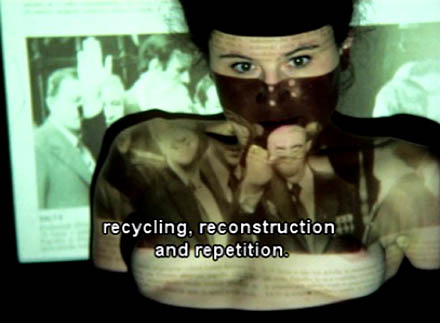Filed under: Uncategorized
…and other histories of feminism

The grammar of rights and the grammar of feminism clearly show that to implement social change, contemplation is not enouh. Cognitive and immaterial labor produces other types of class and hierarchical relationships today. The word emancipation in EU is of tricky nature, since it allows for the emancipation of middle class and upper class women, while on all the others are being imposed reinforced and meticulously hidden new enslavement conditions by the labor market. The EU has established a whole migratory class of helping, cleaning, and serving women, immigrants not only from outside the EU but from within the EU, namely from states that are seen as peripheral and underdeveloped. Besides sex work, and less politically correct (naming of) direct, brutal, and forced prostitution, a category of new slaves is arising in Europe. Migratory women without permits and legal status work in households in the western worlds of the EU and allow the emancipation of women in such households. In other words, emancipation for some, is a direct enslavement for others, both relations have to be seen through mechanisms of decomposition and recomposition of post-Fordist changes of labor and the brutal prevention of legal access to labor markets.
What is needed is a political action that is not based solely on imagination but on almost material incorporation of very real histories, present practices, experiences, and political theoretical elaborations of changed conditions of production of knowledge, labour, and feminism/migration.
Feminism has developed empowering feminist figurations from Haraway cyborg, to nomads etc., which are imagined as new agents and actors within possible socialist feminist frameworks of emancipation. But in the former Eastern European context we had real feminist politics that need to be interpreted. The ex-Yugoslav politics need not be imagined for they are supported by facts, documents, politics, and practices that are constantly being overlooked. We have to be less imaginative and more politically susceptible in recognizing the material power of these histories and the present.
See Marina Gržinic and Aina Smid’s work Obsession at HACK.Fem.EAST
The video work Obsession by Grzinic and Smid, is presented as an installation that have as its central core the text by Natasa Velikonja, Ljubljana, “Europe is boring,” the text is published in Reartikulacija, the (online) critical journal platform edited by Grzinic and 3 other members part of the art scene in Ljubljana, Slovenia. Read here the text in English.


